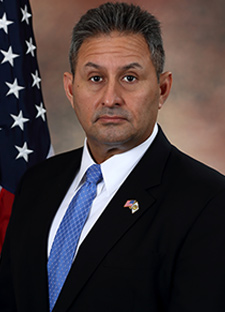Leaders ahead of their time.
Flip through the scrapbook below to learn about former BOP Directors.
1930 - 1937
Sanford Bates
First Director
Read BioSanford Bates 1930 - 1937
Before becoming the Bureau's first Director, Sanford Bates served in the Massachusetts State legislature from 1912-1917. He served as the Commissioner of Penal Institutions in Boston from 1917-1919 and as Commissioner of Massachusetts Department of Corrections from 1919-1929. Mr. Bates became Superintendent of Prisons, U.S. Department of Justice, in 1929. While in this post, Mr. Bates prepared the legislation that established the Bureau in 1930.
Sanford Bates accomplished much as the BOP's first Director. He promoted a unified, professional approach to management by centralizing administration and creating a consistent BOP-wide system of policy. He also implemented a construction program to reduce overcrowding, eliminated political patronage, improved staff training, and established a prison industries program.
From 1934-1972, he served as President (Chairman) of Federal Prison Industries, Incorporated. Mr. Bates also served as President of the American Correctional Association (ACA), and after retiring as Director, served as Executive Director of the Boys Clubs of America, Parole Commissioner for New York State, and New Jersey State Commissioner of Institutions and Industries.
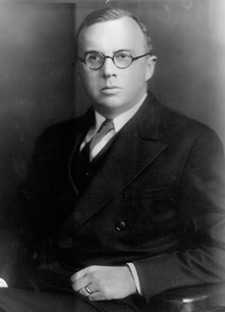
1937 - 1964
James V. Bennett
Second Director
Read BioJames V. Bennett1937 - 1964
Before joining the BOP, James Bennett was a veteran of the U.S. Army Air Corps and served as an Investigator for the U.S. Bureau of Efficiency. Mr. Bennett then authored "The Federal Penal and Correctional Problem," a Bureau of Efficiency report that paved the way for the creation of the Bureau of Prisons.
He served as an Assistant Director for the BOP from 1930-1937 and helped draft much of the legislation that affected Federal corrections, including the laws that established the Bureau and Federal Prison Industries, as well as the Federal Youth Corrections Act. Mr. Bennett was also responsible for furthering the development and full implementation of the Bureau�s inmate classification system and he worked hard to expand FPI�s education, vocational training, and work programs to meet inmate needs. Mr. Bennett served the longest tenure of any BOP Director to date.
Mr. Bennett was a member of numerous U.S. delegations to the International Penal and Penitentiary Congress and the United Nations' Congress on the Prevention of Crime. He also served as President, National Association for Better Broadcasting; President, Joint Commission on Correctional Manpower and Training; President, American Correctional Association (ACA); Chairman, American Bar Association Section on Criminal Law. He received the President's Award for Distinguished Federal Civilian Service, the War Department's Exceptional Civilian Service Medal, and ACA's E.R. Cass Award.

1964 - 1970
Myrl E. Alexander
Third Director
Read BioMyrl E. Alexander1964 - 1970
Myrl E. Alexander was the first BOP staff member to work his way "up the ranks" to become Director. He served the BOP in various capacities, including at USP Atlanta, USP Leavenworth, USP Lewisburg, and FCI Danbury. He served as Chief of Prisons, Military Government for Germany from 1945-1946, then served as the Assistant Director, Bureau of Prisons from 1947-1961.
Mr. Alexander was a strong advocate of preparing inmates for adjustment to the community. He believed that prisons had to work closely with the community to achieve successful reintegration of offenders. One of his major contributions was the expansion of Director Bennett�s halfway house pilot project into a wide-reaching community corrections program, backed by legislation that made community-based options available to adult offenders.
Mr. Alexander was the Founder and a professor of the Center for the Study of Crime, Delinquency, and Corrections at Southern Illinois University and was a Professor at the University of Florida. He also served as ACA President and on the Executive Board of the Illinois Synod of the Lutheran Church in America. Mr. Alexander received the President's Award for Distinguished Federal Service and ACA's E.R. Cass Award.

1970 - 1987
Norman A. Carlson
Fourth Director
Read BioNorman A. Carlson1970 - 1987
Before joining the BOP, Norm Carlson served as a Correctional Officer in the Iowa State Penitentiary in 1956. He began his BOP career at USP Leavenworth and then subsequently worked at FCI Ashland. From 1960 to 1970, Mr. Carlson served in various capacities in the Bureau's Central Office, including as Executive Assistant to Director Myrl Alexander. He was a member of the U.S. delegations to four United Nations' conferences on crime prevention and served as ACA President.
Under the leadership of Norman A. Carlson the agency fully implemented the unit management concept. In response to increased judicial involvement in matters related to conditions of confinement at the local, State, and Federal level, the BOP created the Administrative Remedy Process to address inmate concerns and grievances. Many State and international corrections systems would later adopt the Bureau's Administrative Remedy Process.
Mr. Carlson was the recipient of numerous awards, including the Presidential Rank Award as Meritorious Executive in the Senior Executive Service, ACA's E.R. Cass Award, the Arthur S. Flemming Award, and the Attorney General's Award for Exceptional Service. Upon retirement from the Bureau, Mr. Carlson joined the faculty of the University of Minnesota's Department of Sociology and served as an adjunct professor until 1998. He has served as a Director of the Wackenhut Corrections Corporation since April 1994.
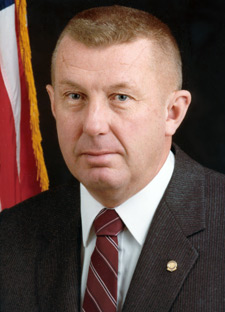
1987 - 1992
J. Michael Quinlan
Fifth Director
Read BioJ. Michael Quinlan1987 - 1992
J. Michael Quinlan began his career with the Bureau of Prisons in 1971 as an Attorney in Central Office. He served as Executive Assistant to the Warden, U.S. Penitentiary, Leavenworth, KS and as Regional Counsel for the Northeast Regional Office.
In 1975, Mr. Quinlan was named Executive Assistant to the Director, a position he held until 1978, when he was named Superintendent of the Federal Prison Camp, Eglin Air Force Base, FL. He became Warden at the Federal Correctional Institution (FCI), Otisville, NY in 1980, and transferred to Central Office as Deputy Assistant Director, Medical and Services Division, in 1985. He was named Deputy Director in March 1986, a position he held until his appointment as Director in July 1987. Mr. Quinlan was a strong proponent of strategic planning to prepare the agency for the future.
In 1988, Mr. Quinlan received the Presidential Distinguished Rank Award; and in 1991, he received the Presidential Meritorious Rank Award and the Attorney General's Exceptional Leadership Award. In 1992, he received the National Public Service Award of the National Academy of Public Administration and the American Society of Public Administration, and the President's Excellence Award from the League of United Latin American Citizens.
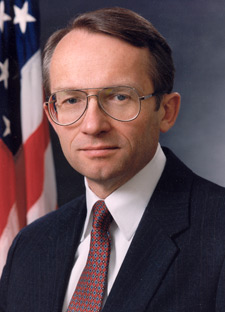
1992 - 2003
Kathleen Hawk Sawyer
Sixth Director
Read BioKathleen Hawk Sawyer1992 - 2003
Dr. Kathleen Hawk Sawyer began her nearly 27-year BOP career in 1976 as a psychologist at FCI Morgantown, WV, and subsequently held positions of increasing responsibility as Chief of Psychology Services at Morgantown; Senior Instructor at the Bureau of Prisons' Staff Training Academy (STA), Glynco, GA; Associate Warden at FCI Fort Worth, TX; the Bureau's Chief of Staff Training at STA; and Warden at FCI Butner. In May 1989, Dr. Hawk Sawyer was selected as Assistant Director for the Program Review Division, where she was responsible for developing and implementing a system of internal controls for all Bureau operations � the program review process.
During Director Hawk Sawyer�s tenure, the BOP introduced the Forward Thinking Initiative, designed to prepare the agency to meet future demands and conditions. By examining technological innovations, economic and scientific developments, demographic patterns and many other trends, the BOP plans and develops policy for various scenarios for alternative futures. She implemented reingineering initiatives intended to identify and eliminate unnecessary or redundant functions in order to maximize staff attention to inmates and yield agency-wide cost savings. During her tenure, the agency developed its first vision statement that identified and memorialized the BOP�s long-term aspirational goals. She implemented Leadership Enhancement and Development (LEAD) training to assist with succession planning.
Dr. Hawk Sawyer received numerous awards, including the Attorney General's Award for Excellence in Management (1992); the Presidential Rank Award for Meritorious Service (1994 and 2000); the Surgeon General's Medallion for "significant and noteworthy contributions to the Office of the Surgeon General, the Public Health Service, and the health of the Nation" (1997); ACA's E.R.Cass Correctional Achievement Award (1997); the Presidential Distinguished Executive Award (1997); the Association of State Correctional Administrators' (ASCA) Michael Francke Award as the outstanding correctional administrator (1998); the Edmund Randolph Award for outstanding service in DOJ (2001); and the Eastern Kentucky University College of Justice and Safety Distinguished Professional Award (2003).
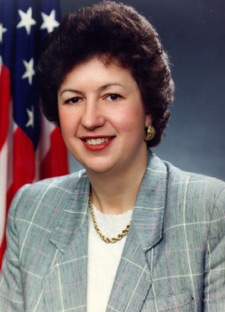
2003 - 2011
Harley G. Lappin
Seventh Director
Read BioHarley G. Lappin2003 - 2011
Harley G. Lappin began his 25-year BOP career in in 1985 as a case manager at FCI Texarkana, TX, and subsequently held positions of increasing responsibility as Central Inmate Monitoring Administrator at the Western Regional Office; Camp Administrator at FCI Jesup, GA; Associate Warden at FMC Carville, LA; and Branch Administrator of the Program Review Division in Central Office. He served as Warden at FCI Butner, NC, and later at USP Terre Haute, IN. In July 2001, Mr. Lappin was selected as Regional Director of the Mid-Atlantic Region, where he was responsible for oversight of 16 institutions (including 2 correctional complexes) and 3 community corrections offices in a seven-state area.
During the administration of Harley G. Lappin, the Inmate Skills Development Branch (now called the National Reentry Affairs Branch) was created to coordinate the agency�s release preparation and reentry efforts and provide a centralized point of contact/liaison for external partners.
Mr. Lappin received numerous awards throughout his career, including the Associate Warden of the Year award for the Bureau's South Central Region (1992); the Bureau's Excellence in Prison Management award (2000); the Attorney General's Award for Excellence in Management (2001); and the Presidential Rank Award of Meritorious Executive (2004). Most recently, he received the American Correctional Association�s E.R. Cass Award for Correctional Achievement (2010), the highest honor bestowed by that organization.
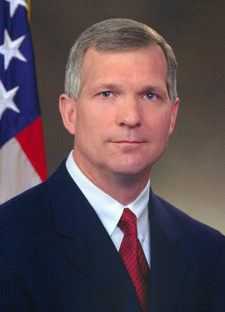
2011 - 2015
Charles E. Samuels, Jr.
Eighth Director
Read BioCharles E. Samuels, Jr.2011 - 2015
Charles E. Samuels, Jr., began his 27-year career with the Bureau of Prisons as a Correctional Officer in March 1988. He was promoted through a variety of positions, including Case Manager at USP Atlanta, GA, Community Corrections Oversight Specialist at FCI Phoenix, AZ, Unit Manager at FCI Dublin, CA, Program Review Division Examiner in Central Office, Regional Correctional Programs Administrator and Executive Assistant in the Northeast Region, Associate Warden at FCIs Otisville, NY and Beckley, WV, and Ombudsman in Central Office. Director Samuels served as Warden at FCIs Manchester, KY and Fort Dix, NJ, prior to being named Senior Deputy Assistant Director of the Correctional Programs Division (CPD). He was the Assistant Director of CPD from January 2011, until his appointment as Director in December 2011.
Throughout his tenure, Director Samuels was committed to ensuring the well-being of all staff. His unprecedented emphasis on labor-management relations, including the signing of a collective bargaining agreement after 16 years of negotiations, was critical to the significant advances he made to further ensure staff safety. Director Samuels was also deeply committed to enhancing the Bureau�s reentry mission, which he did by establishing the Reentry Services Division, and expanding evidence-based inmate programs, including those geared toward female inmates. Director Samuels managed the agency at record population levels leading to extreme crowding in federal prisons, and he also oversaw the first decline in the inmate population in 34 years, along with a substantial decline in the number of inmate assaults on staff.
Mr. Samuels received numerous awards throughout his career, including Associate Warden of the Year for the Mid-Atlantic Region (2001); the Edward H. Levi Award for Outstanding Professionalism and Exemplary Integrity (2015); and the U.S. Department of Justice Edmund J. Randolph Award (2015), the highest award bestowed by the Department of Justice.
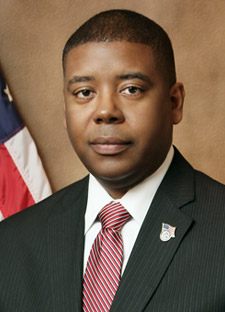
2017 - 2018
Mark S. Inch
Ninth Director
Read BioMark S. Inch2017 - 2018
On September 18, 2017, Mark S. Inch became the ninth Director of the Federal Bureau of Prisons and assumed the responsibility for the oversight of 122 Bureau of Prisons� facilities, and approximately 39,000 staff and 186,000 federal offenders nationwide.
Prior to being selected as Director of the Federal Bureau of Prisons, Mr. Inch served as the Provost Marshal General/Commanding General, Criminal Investigation Command (CID) and Army Corrections Command where he maintained executive management oversight of the Army Corrections System. During his military career, he held other senior positions including: Commanding General, Combined Joint Interagency Task Force 435 in Afghanistan, where he was responsible for Detainee Operations and Rule of Law Development within the Afghan Security Sector; Chief of Military Police Corps Regiment/Commandant, U.S. Army Military Police School in Fort Leonard Wood, MO; and Commandant, U.S. Disciplinary Barracks, Fort Leavenworth, Kansas. Director Inch served as a Military Police Officer for 35 years from Platoon Leader to the most senior Military Police position in the U.S. Army.
As Director, Mr. Inch was committed to the principles he developed during his career and each staff member�s role and responsibility as corrections professionals. These principles incorporated a set of five shared values: respect, integrity, selfless service, courage and compassion.
During his career, Mr. Inch received the American Correctional Association's highest honor, the E.R. Cass Award for lifetime achievement in Corrections (2013). He also completed professional certification with the American Correctional Association and was the first member to earn the Certified Corrections Executive designation with Honor.
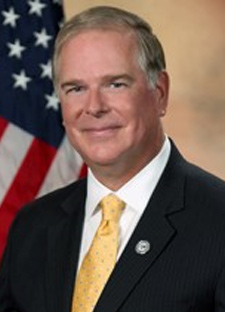
2019 - 2020
Kathleen Hawk Sawyer
Tenth Director
Read BioKathleen Hawk Sawyer2019 - 2020
Kathleen Hawk Sawyer, Ph.D., began her second term as Director of the Federal Bureau of Prisons on August 19, 2019 when Attorney General William Barr appointed her as the Bureau�s 10th Director. Dr. Hawk Sawyer had previously served as BOP�s sixth Director, and after a successful 27 year career, retired in 2003. She now holds the distinction of being the first female Director of the Agency and the first Director to serve two terms.
Upon his re-appointment of Dr. Hawk Sawyer, Attorney General Barr indicated his confidence in her to lead the BOP with competence, skill and resourcefulness and to assist in identifying long-term leadership for the BOP. During her 6-month tenure, she led the agency in initiating its implementation of the First Step Act of 2018 including initial risk assessments for all federal inmates and provided leadership and support through the transition period to new BOP leadership.
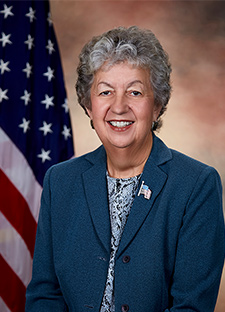
2020 - 2022
Michael D. Carvajal
Eleventh Director
Read BioMichael D. Carvajal2020 - 2022
Attorney General William Barr appointed Michael D. Carvajal as the Bureau's 11th Director on February 25, 2020. After serving four years in the United States Army, Mr. Carvajal began his thirty-year career with the Bureau of Prisons in 1992, as a Correctional Officer at FCI Three Rivers (TX). He served in positions of increasing responsibility, including as Lieutenant, Captain, Associate Warden, Warden and as a Complex Warden before being promoted to the agency Executive Staff as Regional Director for the Northeast Region in July 2016. Mr. Carvajal became the Assistant Director for the Correctional Programs Division in August 2018 and held that position until being appointed as Director.
During his tenure as Director, Mr. Carvajal oversaw the operation of 122 Bureau of Prisons facilities, six regional offices, two staff training centers, as many as 10 contract facilities, and 22 residential reentry management offices. He was responsible for the oversight and management of approximately 36,000 staff and 150,000 inmates. His tenure included some of the most challenging, unprecedented, and historic times for the Agency: the management of the worldwide COVID-19 pandemic (including expediting the placement of more than 45,000 inmates on home confinement); implementation of the First Step Act (including the release of more than 8,000 inmates); establishment of various staffing and recruitment initiatives; 13 federal executions after a 17 year hiatus; the devastation of FCI Estill by a tornado; and a variety of support missions to assist DHS at the southern border, FEMA with winter storms in Texas, and DOJ with the response to protests in Washington, DC and across the nation.
Mr. Carvajal championed the addition of the Agency's fourth core value - Courage. Acknowledging that Courage demands self-discipline and consistency in behavior and requires a voice that addresses difficult subjects, delivers tough feedback, and shares dissenting opinions that are based on what is best for the agency and the people in it, not individuals, groups, institutions, or regions.
